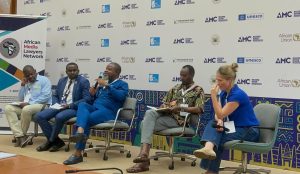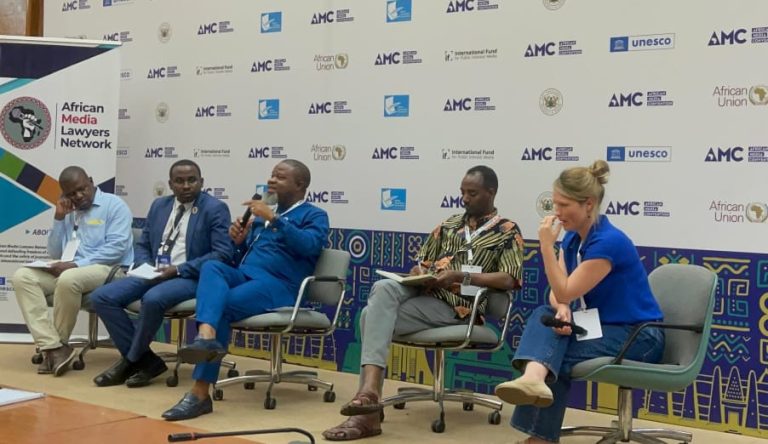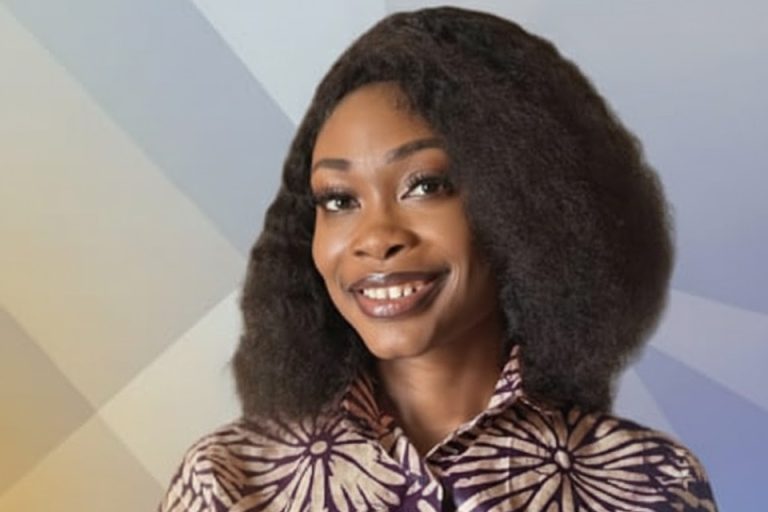
Media stakeholders have decried the use of laws such as cybercrime and cybersecurity regulations, press codes, disinformation provisions, and electronic communication laws to stifle freedom of expression, critical journalism, and fundamental rights and liberties in Africa.
They noted the alarming trend of employing these laws to suppress critical journalism and fundamental rights. This weaponization poses a significant threat to media freedom and the essential role of the press in a democratic society.
This concern was expressed at the 3rd African Media Convention (AMC) which took place in Accra, Ghana, from May 15 – 17, 2024, under the theme “The African Media We Want: Enhancing Freedom, Innovation, and Environmental Sustainability in a Dynamic World.”
Participants acknowledged the media’s potential to shape public discourse, remove barriers for marginalized groups, foster innovation, and advocate for environmental conservation and sustainability. Additionally, they aligned with the May 3, 2024, joint declaration by the African Commission on Human and People’s Rights Special Rapporteur on Freedom of Expression and Access to Information and other stakeholders, which highlighted the interconnectedness of the climate crisis and freedom of expression.
The Convention underscored the media’s essential role in fostering democracy, promoting innovation, and advocating for environmental sustainability, stressing the importance of safeguarding fundamental rights such as media freedom and access to information.
Highlighting some challenges, participants noted that one of the most alarming concerns was the continued threat to journalists’ safety, saying that between January 2023 and May 2024, 14 journalists were killed in Africa, a stark reminder of the dangers faced by those who report the news. They pointed out the unresolved murder of Ghanaian journalist Ahmed Suale, which occurred five years ago, as exemplifying the impunity that often follows such crimes. They urged the authorities to take definitive steps to protect journalists and prosecute those responsible for attacks against them.
Another significant challenge facing African media, they noted, is the persistent lack of funding, sustainable business models, and limitations on innovation, exacerbated by the rapidly changing media and digital landscape, necessitating a continuous evolution of media practices and structures to stay relevant and effective.
The under-representation of diverse voices, including persons with disabilities (PWDs), within African media was also a major concern. Limited interventions to break down barriers to access and participation further marginalize these groups, underscoring the urgent need for more inclusive media practices.
While acknowledging the potential of Artificial Intelligence (AI) and emerging technologies to enhance media work, the convention also recognized the risks these technologies pose to media freedom. The use of AI for coordinated disinformation campaigns and the promotion of unethical journalism are significant threats that need to be addressed to protect the integrity of the media.
Additionally, the convention noted the insufficient coverage of environmental issues by African media outlets. This lack of coverage hinders public engagement and action towards better environmental practices and sustainability, which are crucial for the continent’s future.
The Convention made a number of commitments and suggestions in response to these worries; they committed to supporting media independence and freedom throughout Africa including making sure that journalists were safe from various dangers and to work towards repealing or amending legislation that imposed restrictions.
Participants called for investigation and prosecution of attacks against journalists, urging states to respect their duty to ensure that journalists can work freely and safely. They also advocated for reforms in media workspaces including improved welfare, capacity building, investment in innovation, and the promotion of entrepreneurial journalism.
Promoting diversity and inclusion was another key recommendation, with a call for the integration of disability and diversity inclusion into media practices, including affirmative action for PWD employment and consistent coverage of issues affecting marginalized groups.
Participants stressed media and information literacy as an essential measure, emphasizing the importance of collaboration between media entities, technologists, fact-checkers, civil society, and government entities to combat disinformation and enhance journalists’ competencies. The convention also urged academic institutions to modernize journalism education to address emerging technological developments and environmental reporting.
They encouraged app developers to create solutions tailored to African challenges and advocated for more resources to facilitate the use of AI and emerging technologies with adequate safeguards against associated risks. The convention called for policies to ensure fair revenue sharing with big tech companies, inspired by legislative examples like Australia’s revenue-sharing laws.
Emphasizing the role of the media in promoting Africa’s economic growth, the convention highlighted the importance of sustained reporting on the African Continental Free Trade Area (AfCFTA) protocol and fostering inclusion and access to information.
The convention reaffirmed the importance of creating safe and conducive operating environments for journalists and reiterated the collective commitment to building a vibrant, inclusive, and sustainable media landscape in Africa, with a focus on upholding principles of freedom, innovation, environmental responsibility, diversity, and editorial independence.
The participants agreed that through solidarity and collective action, the envisioned African media will significantly contribute to the continent’s development and prosperity.





